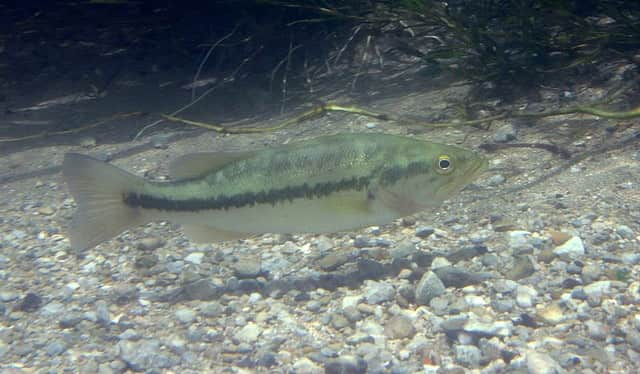Bass Mortality Associated With Summer Tournaments
Pursue The Outdoors 06.23.11

Just what effect do fishing tournaments have on fish populations? Pursue the Outdoors checks out the facts.
Extensive research has been conducted regarding black bass mortality associated with fishing tournaments. Over the past three decades, the results of these studies have provided a better understanding of the detrimental impacts that improper handling can have on tournament-caught fish.
According to Arkansas Game and Fish Commission biologist Lee Holt, improper handling techniques can be very stressful to the fish and even result in high mortality rates, especially during the hot, summer months. “Due to the increasing number of tournament events, and considering that many of these events are held during the summer, it is imperative that emphasis be placed on taking better care of the catch. As most fishermen know, one of the most critical times for the fish is during the weigh-in,” Holt said. “However, another critical aspect is often overlooked. How anglers handle the fish between catching and weigh-in is also very important to keeping bass healthy. While many anglers have boats with sophisticated live-wells, simply filling it up with water and aerating it may not be enough,” he added.
Studies and science dictates that bigger fish are more susceptible than smaller fish to mortality associated with temperature changes and oxygen deficiencies, Holt explains. “That is, bigger fish die first, and what is every tournament angler after? You guessed it, the bigger fish,” he said.
In an effort to better preserve the bass fishery, tournament anglers should be more mindful of their efforts to provide as much comfort as possible to their catches. If the angler takes great care of the fish while in their possession, the fish’s chances for survival greatly increases.
As concerned anglers, what can they do, Holt asks? “Believe it or not, you have many options. First of all, start with ensuring that your live-wells function properly. Next, provide the fish with fresh water every couple of hours, by simply doing a water exchange. Furthermore, plan ahead, and freeze a couple of half-gallon milk jugs, or similar type jugs to carry with you on your trip,” he says.
By doing so, you will have an adequate amount of coolant to help regulate the water temperature within the live-wells. The jugs do not take up much space and are much easier to manage than bags of ice. Cooler water is important as it retains more oxygen than warmer water and slows down the fish’s metabolism.
Non-iodized salt applied at a rate of 1/3 cup per 5 gallons of water can also be added to the live-well to help the fish maintain an osmotic balance. “When landing your catch, be mindful of the hot summer air. You do not like it, nor does the fish. Get the bass to your aerated, cool live-wells, pronto,” Holt explains.
“If you absolutely must admire your “money-maker,” do so while the fish is in the confines of the cooler water, not in the hot air. Lastly, if at all possible, schedule tournaments for the cooler times of year. Avoid the hot, summer days of July and August,” Holt suggests.
There is no cure all for preventing fish from dying. However, with a little education, cooperation and participation, anglers can help ensure that their catch survives to bite another day.

